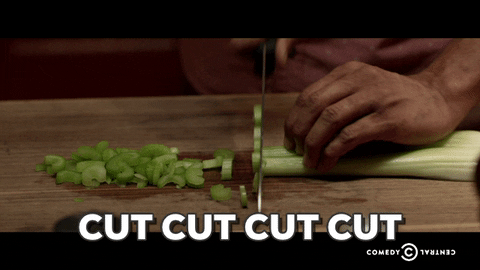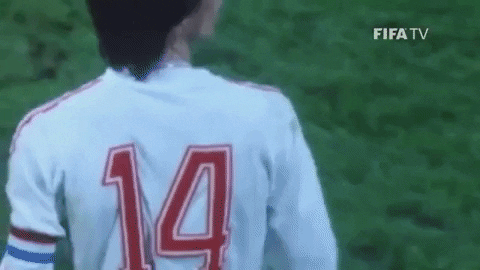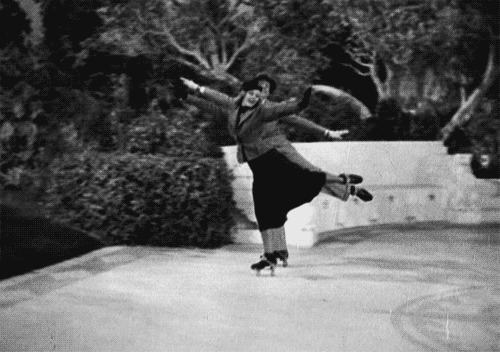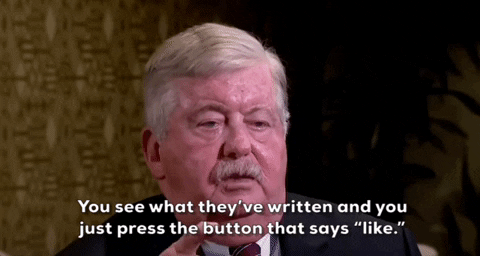AOL Time Warner for Sport; Netflix has won, what now; Bundling cord-nevers; Sliding doors for snow sports; That Roger Mitchell book; Cruyff's turning in his grave; 'We are now vulgar'
Overthinking the sports business, for money
Caught in the Nevers*
What happened?
This week’s story is Fox, ESPN and Warner Brothers Discovery announcing a joint streaming platform for their combined sports assets aimed at Cord-Nevers, a demo referenced separately in press releases by Bob Iger of Disney and Lachlan Murdoch of FOX/Succession.
*Note: Cord-nevers is shorthand for young people who fuck up the business model by not paying through the nose like their parents did.
What’s really happening?
It’s always a red flag when something launches without a name.
Word is that they were going to release in the summer but it got leaked.
As a result, it all feels very sudden - see the bit on timing below.
To fill the vacuum people have started calling it Hulu for Sport, which is just cruel.
Internally they refer to it as Raptor…or perhaps Raptr, if we’re going to be all 2014 about it.
Personally, I’m veering towards AOL Time Warner for Sport.
There are definite Y2000 dot com crash vibes.
As marketing guru Michael Porter never said: When in doubt, create an unwieldy and confusing behemoth.
Beneath the PR spin, there are structural echoes (consultant speak for copying) of sports traditional media rights strategy.
Take something people want to watch.
Put it inside a big container full of other shit and charge a higher price.
Er, that’s it.
The array of sports rights in AOL Time Warner for Sport’s department store is as follows (HT Sportico).
Another framing of the content is ‘The NFL and everything else’.
But this JV doesn’t have Sunday Night Football (NBC and Peacock didn’t come to the party, probably because they have Sunday Night Football).
Which gets to the ‘Who had pilau rice?’ question of who paid what for what and how do they work out what they get back in return.
Likewise, NBA. The domestic tender is out in the market currently - how does this affect that? To merit their place, have WBD promised the others that they’ll renew? In which case, that’s a lovely lever to hand Adam Silver.
And on the supply side, what actually is it? On whose platform does it reside and why? That’s one for the OTT suppliers to fight over.
As my nan used to say: be a plumber, there’s money in plumbing.
The secret of comedy is………………wait…………wait………timing.
Back to why now?
The press release for #AOLTimeWarnerForSport (as I’m determined to make go viral, or at least sports vertical B2B viral) puts the launch date somewhere later this year.
The next day Bob Iger was talking about yet another new future for sports media aka ESPN’s standalone DTC play, with a due date a year later aka ‘a fall 2025 rollout’.
So there we have it.
Two big new things, containing the same type of stuff, launched a year apart.
Iger and Co are taking a thrilling new approach to marketing’s central doctrine that A confused customer never buys.
There’s also a piracy build here.
The data suggests that irritation is every bit as important as price when it comes to why people stream illegal sport.
It shouldn’t need a spreadsheet to work out how to watch Spurs.
Simplicity of experience is the need that the sports media industry is structurally incapable of meeting.
So on we go. Bundle, unbundle, rebundle, repeat as necessary.
It’s almost like they care more about their shareholders than sports fans.
See also:
This is an excellent list of difficult questions arising, by Dan Rayburn (thanks to Carlo De Marchis for flagging)
See also:
The View from WhatsUP (the best backchannel in the sports business)
Peter Hutton: We all look it at through a sports magnifying glass - but think the big impact is actually on the linear cable bundle. One of the main reasons to stick with cable (Monday night football), just got removed - can only accelerate the ‘cord-cutting’
Daniel Kirschener: Agree with Peter on this. Have to assume Disney was in the lead here (and Iger leads the press release), so helpful context to think about the drag-out fight between Disney and Spectrum. This could also be seen as targeted at the streaming “rebundlers” like YouTube TV, DirecTV Stream, etc. Every sports fan who cable cuts has to pick up one of those streaming rebundlers even if they’re also subscribing to a bunch of other services. When I think about this personally, I cut the cord years ago, but I’ve been subscribing to a streaming bundle ever since then so I can watch sports on the main cable and TV networks. I could imagine that changing once this launches.
Tony Singh: Completely agree although arguably stops anyone doing to their sports businesses what Netflix has done to their entertainment businesses; if this week's UP pod told us that Netflix had become, irrevocably, the indispensable entertainment subscription, this service could become the sports equivalent and Disney et al can retain much of the margin taken by the platforms and (re)bundlers AND look like they are offering the customer value, with cheaper prices than the standalone d2c services. Which would seem a pretty defensible long term position to take.
Meanwhile, Netflix has won
This week’s UP pod talks to the longer term, with Erin Ruane, Netflix’s former long time head of acquisitions and Claire Kelly, MD of Gemba.
The conversation was about how they got here, what they’ve learnt and where they go next.
That’s twenty years of knowledge being applied to the subscription marketplace as poverty and fatigue bite hard - see the shitshow above.
Here’s Erin Ruane on the broader meaning of the WWE deal to Netflix:
“It’s part of their future, in terms of what they are going to do next. Their feature film strategy has changed a bit. I think you'll see less of the big Hollywood films and more acquisitions. Also, gaming is live, right? You're interacting in a live way. That’s going to be a big part of what they do, whether they wanted to do that or not - it was meant to be one of many things that you subscribe to - but they're so big now that they can potentially be everything you need, and they're maybe figuring out how to get there."
‘We have sold our uniqueness for 6% of our budget'
Apropos of nothing: I was looking through some old stuff and stumbled across this quote from Johan Cruyff in 2010.
The Dutch Master wrote a weekly column in El Periodico de Catalunya, and this is what he said when he heard that his beloved FC Barcelona had sold the shirt to Qatar.
“We are a unique club in the world, no one has kept their jersey intact throughout their history, yet have remained as competitive as they come.
We have sold this uniqueness for about 6pc of our budget. I understand that we are currently losing more than we are earning. However, selling the shirt shows me that we are not being creative and that we have become vulgar. If things are so bad, then we should cut out the deal we have with Unicef, and all the values it represents because we pay them to carry the logo on our shirts.”
Barcelona, vulgar?
Cruyff was always ahead of his time.
Sliding doors
Ed Warner asks: what’s the point of funding snow sports?
Makes me wonder whether the time has come for UK Sport to cut outdoor winter sports from its funding list. With money tight, and against the background of the climate crisis, is there sufficient inspiration from British sliders, freestylers and downhillers to warrant National Lottery support in our non-alpine nation. Shouldn’t our focus of scarce resources be elsewhere? There’s £14 million being pumped into these events ahead of the Milan Cortina 2026 Winter Olympics.
UP Coming: That Roger Mitchell Book
Last week we recorded a podcast with Roger in the lovely loft room at L’Escargot in Soho - big thank you to Thomas Hitzlsperger, the owner of that great historic institution.
Roger’s new book is called Sport’s Perfect Storm: An Industry Now Totally Adrift.
It’s good, you should read it.
You won’t agree with all of it, and nor should you.
That’s not the point.
It’s a provocation (he’s Glaswegian ffs).
You need to understand the arguments he’s making and have a point of view on them.
I asked him what will hurt most when it goes. His answer was test cricket, which surprised and pleased me.
Tonally, the book suffers from having two authors; You sense when Roger’s at the controls and when he’s not.
This duality makes it an uneven read: part polemic ideas book and part finance text book, a sporting version of Brealey and Myers’s Principles of Corporate Finance.
For someone like me who doesn’t really understand money, the bit in the middle is a useful reference. I’m sure I’ll go back and steal from it when the need arises.
Anyhow, read it. It’s more hopeful than its title suggests.
As is the podcast.
We’ll put it out next Tuesday.
Didn’t we forget something?
So there we have it, a sports business newsletter that doesn’t mention the Super Bowl.
Actually, there’s a podcast out tomorrow on the ticketing of the Super Bowl, but apart from that.
Remember: Press the Like button.











